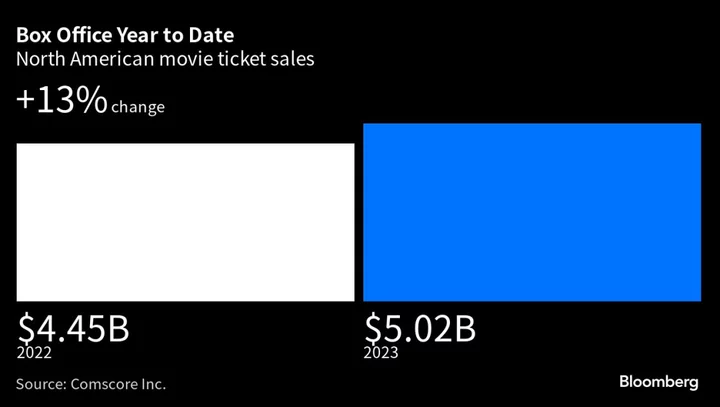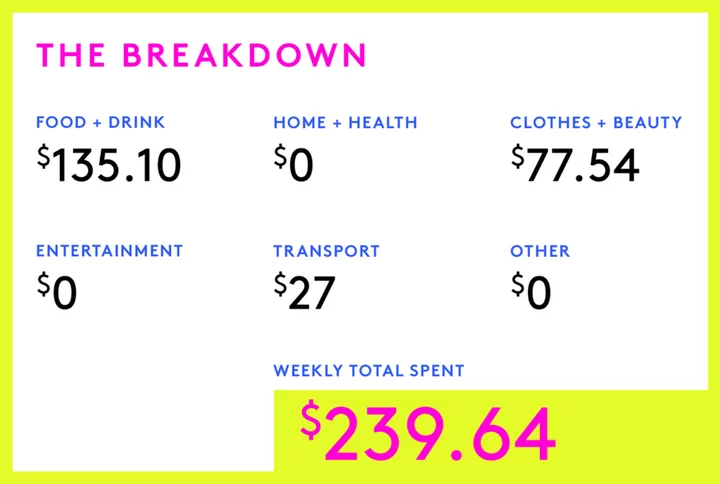
New social media recommendations for teens focus on preventing harm
A new report from the American Psychological Association (APA) gives parents of adolescents information that
2023-05-09 16:20

Hong Kong high-rise aims to become 'village' of the dead
With its white marble foyer and lavish chandeliers, the 12-storey tower could be mistaken for one of Hong Kong’s newest hotels, but it offers a longer stay: a final resting place for thousands in...
2023-06-27 09:47

The best Netflix shows of 2023, so far...
Look, you work hard. You deserve a little TV. In fact, you deserve a lot
2023-06-01 21:54

2023’s Best Beauty Advent Calendars Are Already Here — But Not For Long
Big-ticket holiday items like advent calendars usually come at a premium price point, and that's for a few reasons: They tend to be limited in quantity, feature elevated packaging (which shouldn't really matter but also does), and contain myriad products. At best, these beautifully packaged sets offer us anywhere from eight to 25 days of pure unboxing joy. At worst, they end up TikTok-famous for all the wrong reasons.
2023-09-29 04:50

Sherpa who saved climber in Everest death zone says it was hardest rescue 'in my life'
Gelje, who was guiding a client to the 8,849-meter (29,032 feet) summit, made a decision: they would abandon their journey in a bid to save the Malaysian climber.
2023-06-02 12:29

5 sunglasses trends that will be everywhere this summer
The quintessential summer accessory, sunglasses are the perfect finishing touch for any outfit – whether you’re hanging out at home or jetting off on holiday. When it comes to eyewear, trends move fast, so what frames are in fashion this season? As we head towards hotter days, these are the five key sunglasses trends to know about… 1. Oversized frames The coolest way to rock oversized sunnies this season is with sleek square frames, as seen at designer brands such as Celine and Prada. Opt for black or white opaque frames for an understated-luxe look or choose jewel tones to bring a Seventies glam feel. Oliver Bonas Teal Crystal Square Sunglasses, £55 CHPO Anna Recycled Plastic Sunglasses, £30, National Trust Shop 2. Sporty Trendsetter Kim Kardashian now favours sporty sunglasses to top off her looks. Throw it back to the Nineties and Noughties with narrow, wraparound sunnies with retro denim or tailored outfits. Poppy Lissiman Caidyn Mint Green Sunglasses, £85 River Island Black Angled Sunglasses, £14 3. Narrow frames As seen recently on the likes of Hailey Bieber and Kendall Jenner, narrow rectangular sunglasses are a big hit with celebs and models at the moment. These eyebrow-revealing frames are a subtle way to nod to the Nineties and a stylish option if you don’t suit oversized square styles. Marks and Spencer Collection Bevelled Square Sunglasses in Black, £15 Thomas Sabo Kim Slim Rectangular Pale Orange Sunglasses, £179 4. White frames In contrast to classic black, this season’s white sunglasses are all about making a strong style statement. From narrow Nineties-inspired styles to big oval frames, go bold with your monochrome sunnies. Murielle Amalfi Sunglasses, £90 Arms of Eve Jagger White Sunglasses, £126, Wolf and Badger 5. Tortoiseshell Loving the spring/summer Seventies trend? Then you need a pair of tortoiseshell sunglasses to complete your look. Channel disco-glam with super-sized frames in natural tones, or add a pop of pink. FatFace Claire Pink Sunglasses, £22; Olivia Linen Shirt in White, £59; Ikat Leaves Palazzo Trousers, £59 Dune London Gracies Tortoiseshell Oversized Sunglasses, £40 Read More Charity boss speaks out over ‘traumatic’ encounter with royal aide Ukraine war’s heaviest fight rages in east - follow live 11 of the most eye-popping outfits in Eurovision history, from ABBA to Australia Can I go to work if my child has chickenpox? What is mitochondrial donation treatment and who can get it?
2023-05-11 15:45

Best Buy recalls nearly 1 million pressure cookers after reports of 17 burn injuries
Best Buy is recalling nearly 1 million pressure cookers and separate inner pots due to a defect that can cause hot foods to spew out, posing burn hazards
2023-10-28 02:21

Mark Wahlberg turns 52! Actor has been sober for 104 days as he's 'past the halfway point'
Recognizing that he is 'more than halfway' through his life, Wahlberg is committed to making choices that promote his well-being
2023-06-06 19:26

Drones, Kalashnikovs as learning material for Ukraine teens
Firing a rifle, stripping down a Kalashnikov or learning how to pilot a drone: it is all in a day's training a year and seven months into a war which is only too real for a...
2023-09-15 03:55

10 Easy Travel Essentials To Help Relieve Your Packing Anxiety
When it comes to travel, "last-minute" is hardly a bad thing. Yes, tackling the logistics can feel hectic — but more importantly, the whole affair is thrilling! Spontaneous! Adventurous! Whether you’re in the market for some much-needed R&R in the tropics, or a romantic stroll through Paris, once that *wanderlust* hits, it’s hard to suppress. And fortunately, the stress that tends to come with eleventh-hour vacation planning is always well worth it in the end. So, once you've got your flight itinerary squared away, the only thing left to do is…pack.
2023-08-25 00:16

Crunchyroll is adding mobile games to its subscription service
Crunchyroll is getting into gaming. On Tuesday, the anime streaming service launched Crunchyroll Game Vault,
2023-11-08 05:28

Hubble snaps a seemingly peaceful galaxy. Don't be fooled.
A spiral galaxy in the constellation Pegasus shines from a distance like bone china, a
2023-07-09 02:50
You Might Like...

Taylor Swift is a hero to food banks from coast to coast

‘Mission: Impossible’ Opens to Lower-Than-Expected $56.2 Million

Do Cats Fart?

WINONA Made a Stunning Appearance at the 7th China-South Asia Exposition

Gwyneth Paltrow gives ex-fiance Brad Pitt's skincare line her seal of approval

Stars at Cannes take break from red carpet to support AIDS research

Luny Tunes & Noriega’s Mas Flow Is Still One of the Best Reggaeton Albums of All Time

A Week In Northern Virginia On A $1,095,000 Joint Income
